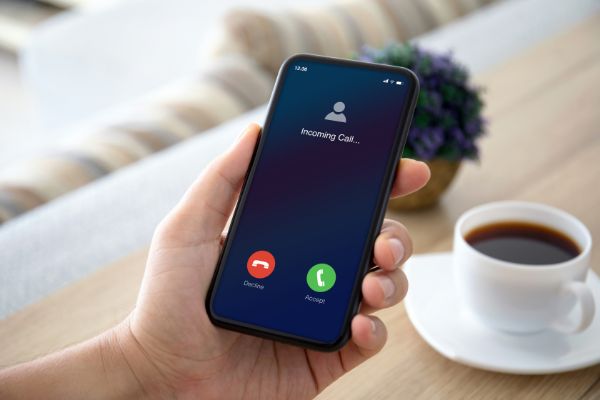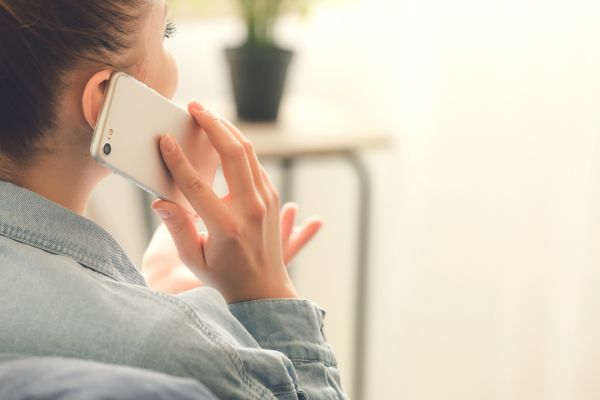Disclaimer: This post may contain affiliate links, meaning we get a small commission if you make a purchase through our links, at no cost to you. For more information, please visit our Disclaimer Page.
Smartphones use their data connections to help users perform different actions. Making phone calls to another user is just one of these many functions.
While most of the one-to-one connections between two phones are solid and reliable, there are still situations where one user’s phone will have some problems connecting to another. Unfortunately, when this action happens, there is a chance that it can interfere with other types of data connections that the phone could make.
Table of Contents
Do Phone Calls Use Cellular Data?
In modern smartphones, making a traditional phone call can use some data. However, whether your phone uses up some of your cellular data can depend on the communications protocols of the operator.
For example, older 2G and 3G networks would use the GSM or UMTS communications standards to facilitate voice calls. Therefore, calling a person using traditional methods would not use data in these cases. However, in 2022, many carriers have already shut down much older standards like this. Although they have made this move gradually, companies have been doing this process for years.
Today, it is much more common for a provider to use some LTE standards to facilitate mobile data use, including phone calls. And the 4G networks on which most carriers and their phone models operate are good examples of this change in how devices communicate.
With LTE in place, even phone calls must take from a subscriber’s cellular data plan to function correctly. However, the overall data that a phone uses for regular phone calls is significantly less than the amount used by other apps on your smartphone. So in many cases, people today can have enough data on their plans to facilitate many long calls for business or other purposes.
The use of data for your regular phone calls also depends on different networks. In general, your cellular data is your carrier’s data, allowing you to use the device from anywhere within the coverage area.
When you sign up for service with a particular provider, you can choose the data plan that best fits your needs. Some of these plans may include access to unlimited data. Regardless of which sort of plan you choose, each carrier will have towers that it has set up. These towers will act as the borders of the company’s coverage area.
This area is essential and determines when and where you can use the phone without needing any other network. The signal from the provider gives your phone all the access to data that it might need, including the ability to make calls to another phone.
If you do not have access to this coverage, your phone’s capabilities will have more limits. However, you can also connect your smartphone to a local wireless network. When you do this, you can use data to run apps or make calls from your phone without using cellular data.
Many businesses or public places offer customers or passersby the opportunity to connect their phones to such a network for free. If you are on your home network, you’ll use data from your internet provider instead.
Why Can’t I Use My Data While on a Phone Call? (Android & iPhone)
Whether you run an Android or iOS operating system, you may find that you cannot use data while simultaneously engaged in an active phone call. That means you cannot use the internet, access some apps, or enjoy the other features your smartphone has for the duration of the call.
There could be a few reasons for this, and understanding some of the histories of the development of different communication technology can help us get to the heart of the matter.
In the past, the signals for accessing mobile data or making phone calls would run off the same antenna. It would mean that person-to-person calls would take precedence over using mobile data to access other features on the phone. As such, making a call would mean that mobile data would shut off while the call was active.
As technology progressed, it became possible for phone service providers to allow customers to keep mobile data running in the background as they made calls to others.
Thanks to VoLTE technology, a type of high-speed communication for devices like modern smartphones, most users should be able to access mobile data and personal call functions simultaneously. Many carriers now support this protocol. However, if you cannot use your data while taking a call, your network provider for cellular data might not support this feature yet.
There are also some hardware limitations to consider. Most new-generation smartphones can use VoLTE protocols to let you do both things simultaneously.
However, some older phones didn’t have the hardware or firmware to do these functions. So if your carrier supports this dual functionality, you might be using an old phone.
Why Do I Lose the Internet Connection When I Get a Phone Call? (iPhone & Android)
There are a couple of reasons your internet might fail when receiving calls on your Android device or iPhone. First, the issue is more frequent if you have a dual-SIM setup.
Every smartphone comes with a SIM card that acts as a unique identifier. Typically, this card will allow the phone to work within a given service area. However, your device will tell you it has no service if you go beyond this area. If this happens, you won’t be able to use most of the features on your phone.
One of the reasons some people put more than a single SIM in their phones is to get around this issue. For example, some people may install another SIM card to have a phone number and mobile access when working for an extended time in another country. While this is undoubtedly useful, such a setup can cause the data part of the phone to fail whenever the user receives or makes phone calls.
It happens because one SIM dedicates itself to phone calls. In contrast, the other SIM will activate for use with mobile data. In this scenario, the user might activate their internet using the first SIM.
If the second SIM can handle phone calls, the first SIM’s internet access will stop when such a call is active. If you know this is the case, try disabling the SIM not in use to see if the problem resolves itself. You may need to update the SIM settings or permissions you have left for this solution to work.
Even if you are not facing a setup that uses two SIM cards in one device, a problem with VoLTE could also cause the data to stop working when a call comes through to you.
To check this, you should be able to go into your phone’s Settings menu and navigate to your Network & Internet subcategory. Different operating systems or phone versions may refer to this area by another name, but it should be similar to this one. Here, you will find some advanced features or options that relate to calls and data.
Once there, check to see if VoLTE is active or not. You can toggle the switch to activate it and try the call again if it is not. You may need to complete the phone restart for this to take effect.
Why Does Hotspot Disconnect When I Get a Call? (iPhone & Android)
The advice in this section assumes that you are not using hardware that would not support the simultaneous use of data and a phone call simultaneously. Further, we will assume that your carrier has the technology to support this dual functionality.
If your hotspot turns off when a call comes in on your Android or iPhone, the settings on the phone may be the main reason. Depending on which settings are active, the smartphone might decide to turn the hotspot off as a way to save data. Although many phone plans today include unlimited data, some carriers do not extend this to their hotspot offers. Therefore, in these cases, you still deal with data caps when a hotspot is active.
Some phones may have active power-saving features as well. If they do, they may limit some functions in favor of others to help the battery last as long as it possibly can on a single charge.
If either of these things is a problem, adjust the settings in your phone to keep the hotspot active. However, if you reach the data cap for the hotspot, you’ll have to wait for that cap to refresh again before you can use it in any capacity.
Why Does Phone Call End After 4 Hours? (iPhone & Android)
Some users on either platform have this kind of disconnection issue after four hours into the call. The most likely reason is that your carrier has a call limit.
They call this a teardown, where the provider sends a signal to the device to end the call after a specific time has elapsed. They may do this for several reasons, but ensuring that individual users do not exceed their plans’ limits is common.
Even if you have unlimited data and calling, your phone still uses the network’s resources for several hours. The carrier may wish to free up these things for other users. The other party may have their plan limitations if you know your phone is not the problem.
Conclusion
Phone calls have come a long way from their early days in past decades. New and vibrant communications protocols give us the freedom to talk to someone far away using a mobile device, and we can often do so without incurring extra charges. In addition, most phones today should be able to keep both calls and data going simultaneously. If you are having trouble doing that with yours, you can take a look at some of our solutions here for advice.


